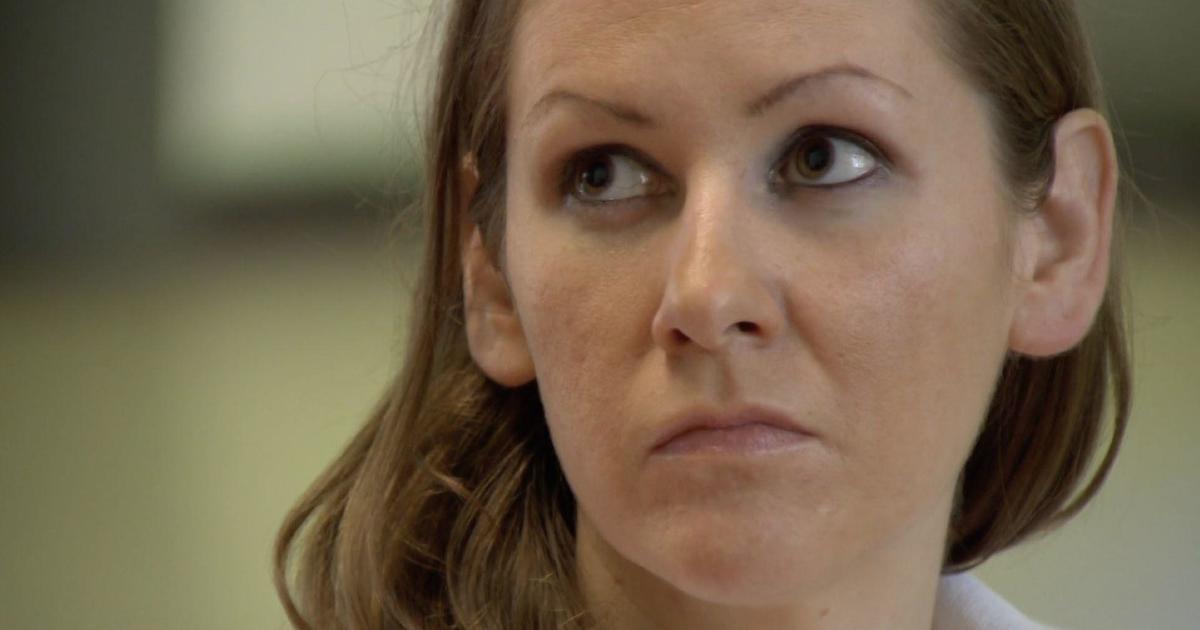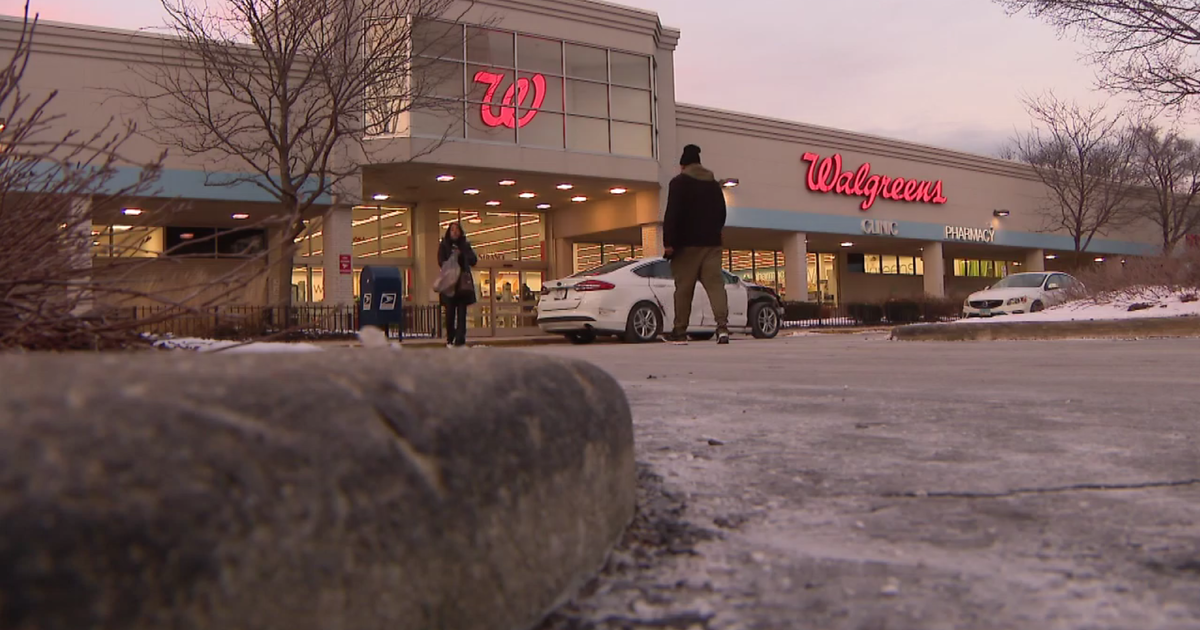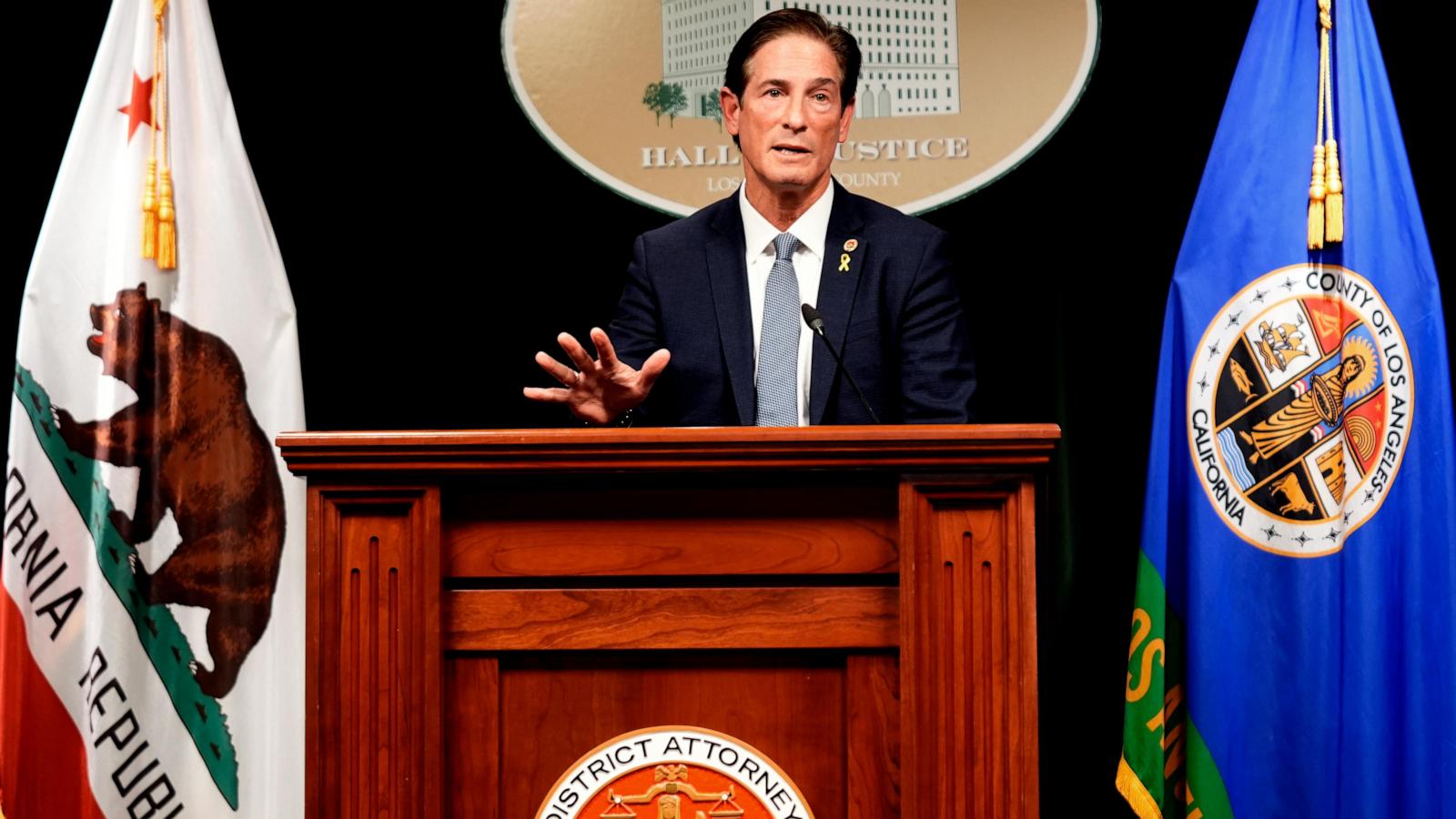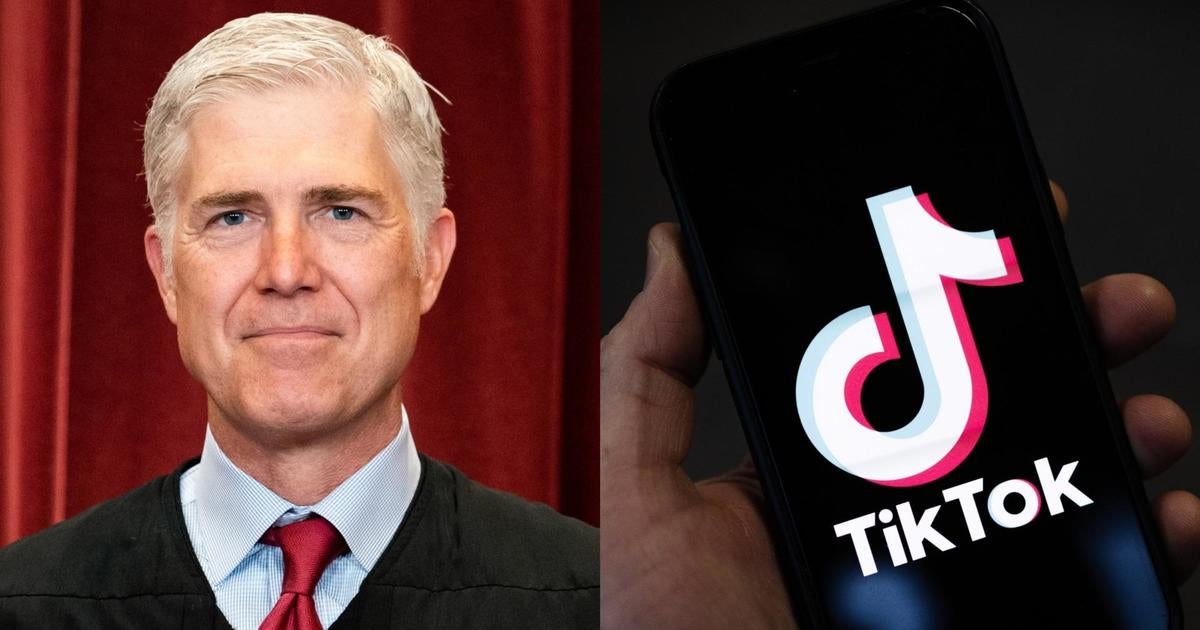Sneak peek: Unraveling the Case Against Melissa
Former day care worker Melissa Calusinski has served 16 years of a 31-year prison sentence for a crime she insists she didn’t commit — a murder that may not have even happened.
She was convicted in 2011, at the age of 25, of murdering Benjamin Kingan, a 16-month-old whom she cared for at an Illinois day care center. Over the years, her appeals have failed, but as “48 Hours” reports in a broadcast airing Saturday, Jan. 18 at 10/9c on CBS and streaming on Paramount +, she has now taken her fight out of the court system and straight to the Illinois Governor JB Pritzker.
This is a case “48 Hours'” correspondent Erin Moriarty has been reporting on for more than a decade, and Moriarty’s latest report, “Unraveling the Case Against Melissa,” features new interviews and never-before-reported information.
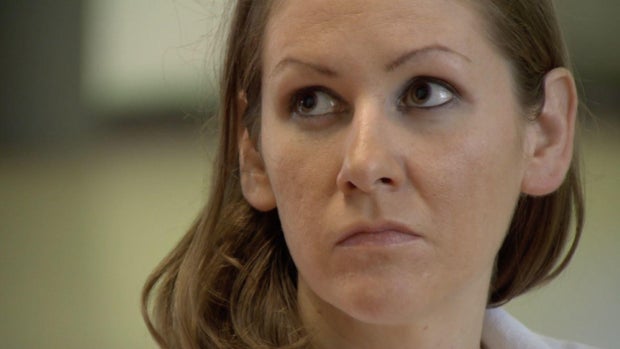
CBS News
The story began on Jan. 14, 2009, when Calusinski, then 22, was working as a teacher’s assistant at the Minee Subee day care in Lincolnshire, a suburb of Chicago. Late that afternoon, Calusinski was alone in a classroom with Ben and other children when she says she noticed he was unresponsive and foaming from the mouth. 911 was called. Ben was taken to the hospital, but he was pronounced dead an hour later.
During an autopsy, the pathologist, Dr. Eupil Choi, told a detective that he observed a skull fracture, extensive bleeding inside Ben’s head, and that the injury was caused by another person, using strong force, hours prior to Ben’s death. And yet, according to the autopsy report, Ben had no cuts or serious wounds on the outside of his body. When police brought Calusinski in for questioning, she denied more than 60 times doing anything to Ben. But after nine long hours, under pressure and without an attorney, she confessed to throwing the toddler on the ground.
“The only way for me to get out was to make a confession, a false confession,” Calusinski told “48 Hours.”
The trial and aftermath
During her November 2011 trial, Lake County, Illinois, prosecutors argued that Ben was a perfectly healthy child leading up to his death. Choi testified about the skull fracture he said he observed — and how he believed the injury was recent and consistent with having been thrown to the floor by someone. Dr. Manny Montez, another pathologist who was brought in by the state to consult on the autopsy, testified that he examined the child’s body and felt the skull fracture with his bare hands.
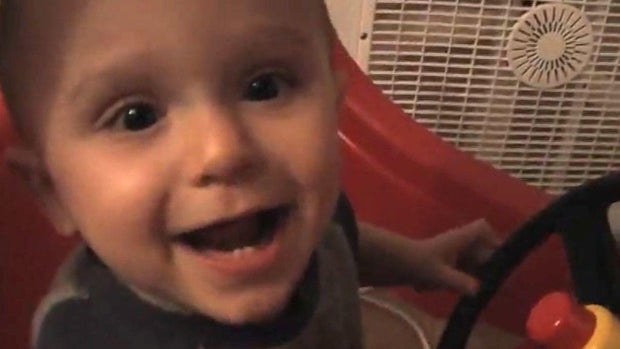
Calusinski’s trial attorney, Paul De Luca, tells Moriarty he had little to counter the alleged skull fracture because, before trial, prosecutors gave him a disc containing dark, unreadable X-rays. Still, De Luca argued that Calusinski was not guilty and that her confession was coerced. He and defense experts pointed to a previous injury Ben sustained. It was noticed at the day care three months before Ben’s death and before Calusinski even started working there.
Ben was also reported to have a habit of throwing himself back and hitting his head. The defense argued that habit exacerbated the old injury and contributed to his death. The jury ultimately rejected that argument, but Calusinski remained determined to prove her innocence, and in 2012, a year after her conviction, Dr. Thomas Rudd, the then-newly elected Lake County coroner, agreed to review the autopsy evidence at the urging of De Luca.
In slides of the child’s brain, Rudd identified what he said was evidence of the old injury — evidence that Choi, the pathologist who conducted the autopsy, had missed. Like the defense experts at trial, Rudd and another well-regarded pathologist he consulted with, believed that the old injury was further exacerbated by Ben’s head banging. A day care worker, Nancy Kallinger, had told police she saw Ben throw himself back twice on the day he died.
“The added fluid of the recent injury…pushes that brain down and shuts down the breathing system. That is the cause of the child’s death. It was the old injury. The old injury was massive,” Rudd told “48 Hours” in 2014.
Still, prosecutors stood by their case. And even though Choi admitted in a sworn affidavit that he had missed that Ben had suffered an old injury, he said he would not have changed his testimony at trial.
Then, in 2015, Rudd’s staff found clear X-rays of Ben on the coroner’s office computer that would turn the case upside down. Rudd and other defense experts said the clear X-rays showed Ben did not sustain a skull fracture. Rudd ultimately changed the manner of death on Ben’s death certificate from homicide to undetermined.
By this point, defense attorney Kathleen Zellner, who has built a career on getting the wrongfully convicted out of prison, had taken on Calusinski’s case. Zellner fought to get Calusinski’s case back before a judge and in 2016, Calusinski was granted an evidentiary hearing to present what Zellner argued was new evidence before Judge Daniel Shanes, the same Lake County judge who presided over Calusinski’s trial. Zellner argued at that hearing that had the defense had access to the clear X-rays at the time of the trial, the verdict would have been different.
“The skull fracture became really important at trial because the prosecutors mentioned it 32 times,” Zellner told Moriarty. “It was the pivotal point in the state’s case to convince the jury it was a homicide.”
But at the evidentiary hearing, prosecutors argued that there was no new evidence in the case and that the disc provided to the defense before trial had software to enhance the x-rays and that De Luca didn’t do enough to brighten them. But De Luca testified he couldn’t open the software, and Zellner, with the help of an imaging expert, argued that it didn’t matter what De Luca did, that the X-rays he had been given had been modified and were inferior to the ones found on the coroner’s office computer.
At the evidentiary hearing, Zellner also called Paul Forman, the deputy coroner during Ben’s autopsies, to the stand. Forman disputed the testimony of pathologist Montez, who testified during Calusinski’s trial that he felt a fracture in Ben’s skull. But Forman, who said he was there when Montez came to the coroner’s office, testified that Montez never physically examined Ben’s body or touched the child’s skull.
Dr. Robert Zimmerman, a renowned pediatric neuroradiologist, also took the stand for the defense at the evidentiary hearing, and he too raised questions about Montez’s testimony. Zimmerman testified that if the skull fracture had existed, it would be visible on the clear X-rays. According to him, it wasn’t.
Still, prosecutors stood by their trial witnesses, Montez and Choi, who said they saw and felt a skull fracture. Neither doctor responded to “48 Hours”‘ recent requests for comment. At the conclusion of the evidentiary hearing, Judge Shanes ruled against Calusinski and denied her a new trial. In his ruling, Shanes stated that he didn’t find Forman’s testimony regarding Montez credible, and he agreed with the state that De Luca could have brightened the X-rays and made them readable. An appeals court affirmed that decision.
“I just don’t understand,” Calusinski told Moriarty through tears.
Then, in 2022, there was a development that gave Calusinski and her defense hope. Eric Rinehart, a new state’s attorney in Lake County, had taken office. Zellner says Rinehart sought more information on the discrepancy over the X-rays, so he recommended she retain the digital forensics company, Garrett Discovery.
In this week’s “48 Hours,” Andrew Garrett and Brian Bowman, of Garrett Discovery, walk Moriarty through their findings. In a report, they concluded the X-rays were manipulated by someone using a software tool used to view X-rays and “that resulted in black washed out images which were unreadable.”
“I can’t think of an innocent explanation,” Garrett told Moriarty.
Garrett and Bowman presented their findings to Rinehart in a November 2022 meeting attended by Zellner and De Luca.
“Eric was just indignant,” Zellner told “48 Hours.” “He was saying, whoever had done this manipulation should be held accountable.”
“I thought he was gonna do something about it,” De Luca said.
But according to Zellner and De Luca, nothing happened after that meeting. By April 2024, Zellner decided to file a clemency petition asking that Pritzker exonerate Calusinski or release her for time served.
“I believe this is her best chance for freedom,” Zellner told Moriarty.
Melissa Calusinski’s fight for clemency
A hearing was scheduled for July 2024 before the governor’s prisoner review board. But days before that hearing, in a twist that Zellner says she didn’t see coming, Rinehart met with an attorney for Ben’s family and then wrote a letter to the board stating his office “strongly opposes Melissa’s clemency petition.”
Rinehart would not do an on-camera interview with “48 Hours” or speak on the record, but in that letter to the board, he wrote that there is no new evidence in the case — and that Calusinski’s petition for clemency does not establish innocence.
On July 9, 2024, Zellner went before the prisoner review board to make her case for Calusinski’s freedom. She was joined by De Luca, computer forensics experts Andrew Garrett and Brian Bowman, and Kathryn Thomas, a Yale psychologist who evaluated Calusinski and found her to be particularly susceptible to giving a false confession.
Thomas told the board that she and her colleague, psychiatrist Alexander Westphal, diagnosed Calusinski with borderline intellectual functioning. Calusinski scored at a 4.8 grade level in sentence comprehension. They also diagnosed her with post-traumatic stress disorder stemming from a rape she reported about two-and-a-half years before Ben’s death. But not everyone at the clemency hearing was there in support of Calusinski’s release. Two Lake County assistant state’s attorneys, one of whom had prosecuted Calusinski, spoke in opposition, as well as Ben Kingan’s parents, who said they were convinced Calusinski is guilty.
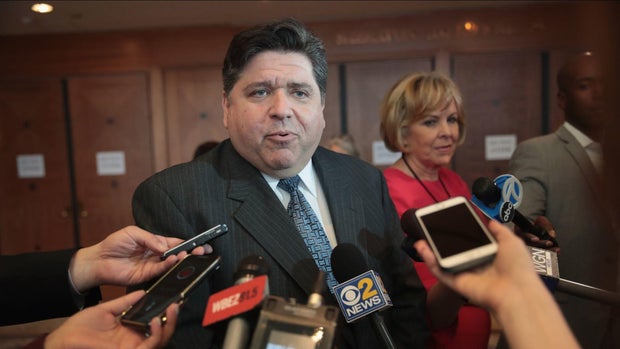
Getty
Following the hearing, it was up to the prisoner review board to make a confidential recommendation to Pritzker as to whether Calusinski should be released, and “48 Hours” has learned that recommendation was just made. There is no deadline for the governor to act.
When Moriarty asked Calusinski what she would say to the governor if given the chance, she responded, “I would say, ‘Just please, look at my case…I didn’t do this.'”
Moriarty’s report includes new interviews she conducted with Calusinski, her family, her attorneys, the computer forensics experts, and a false confession expert who analyzed the case. Moriarty also interviewed two former employees of the day care who have never spoken out before.

